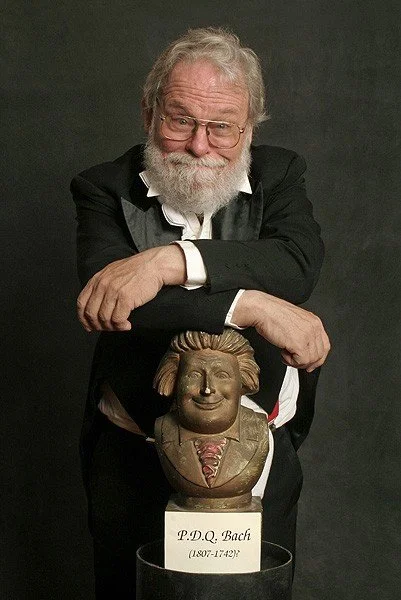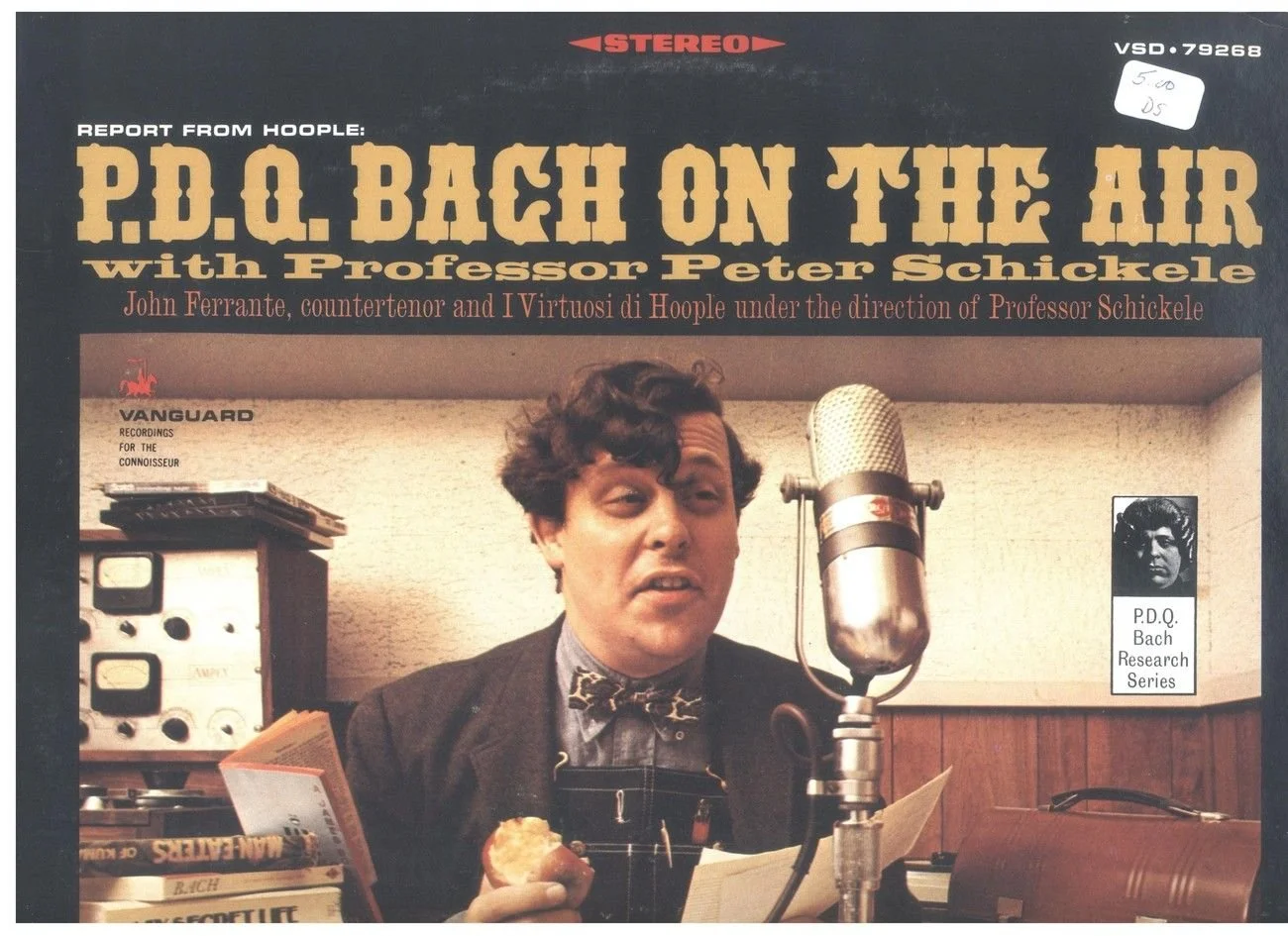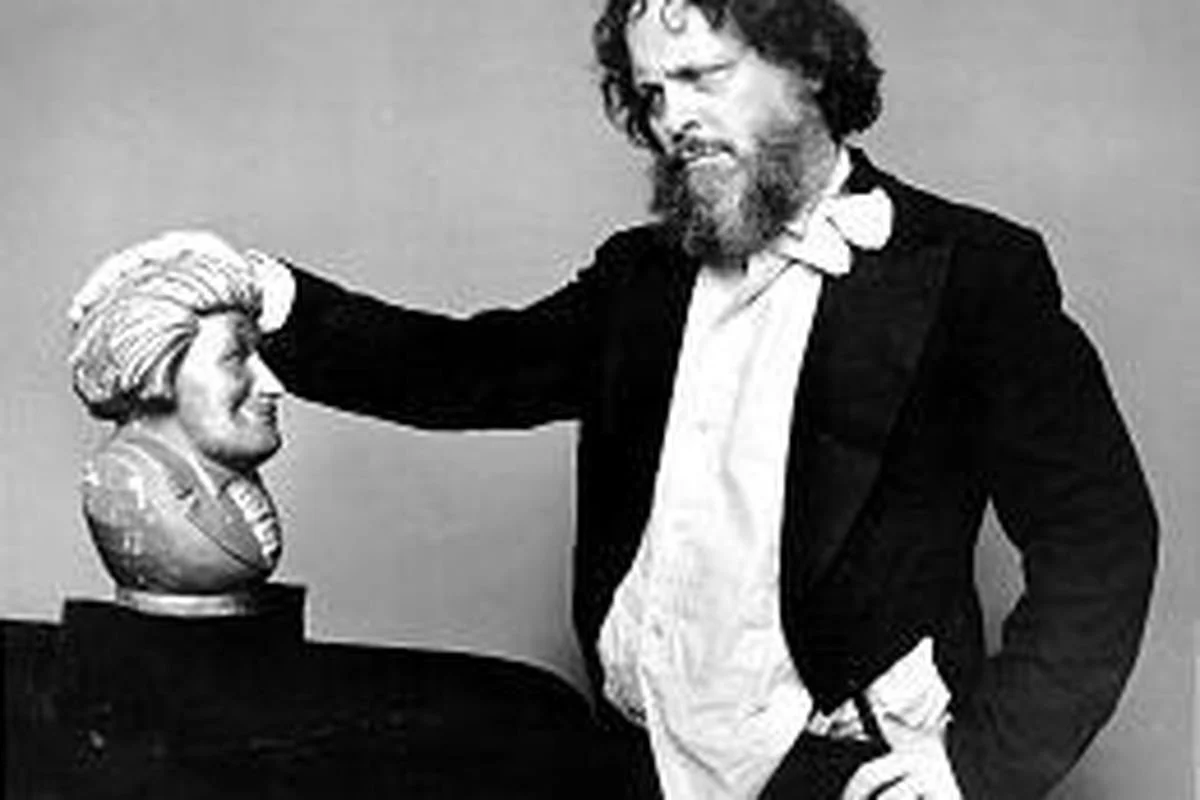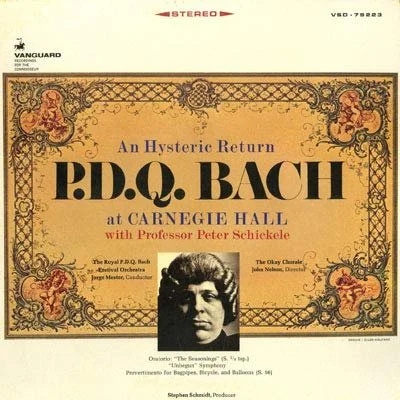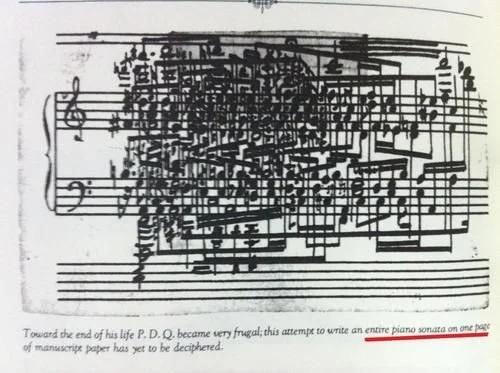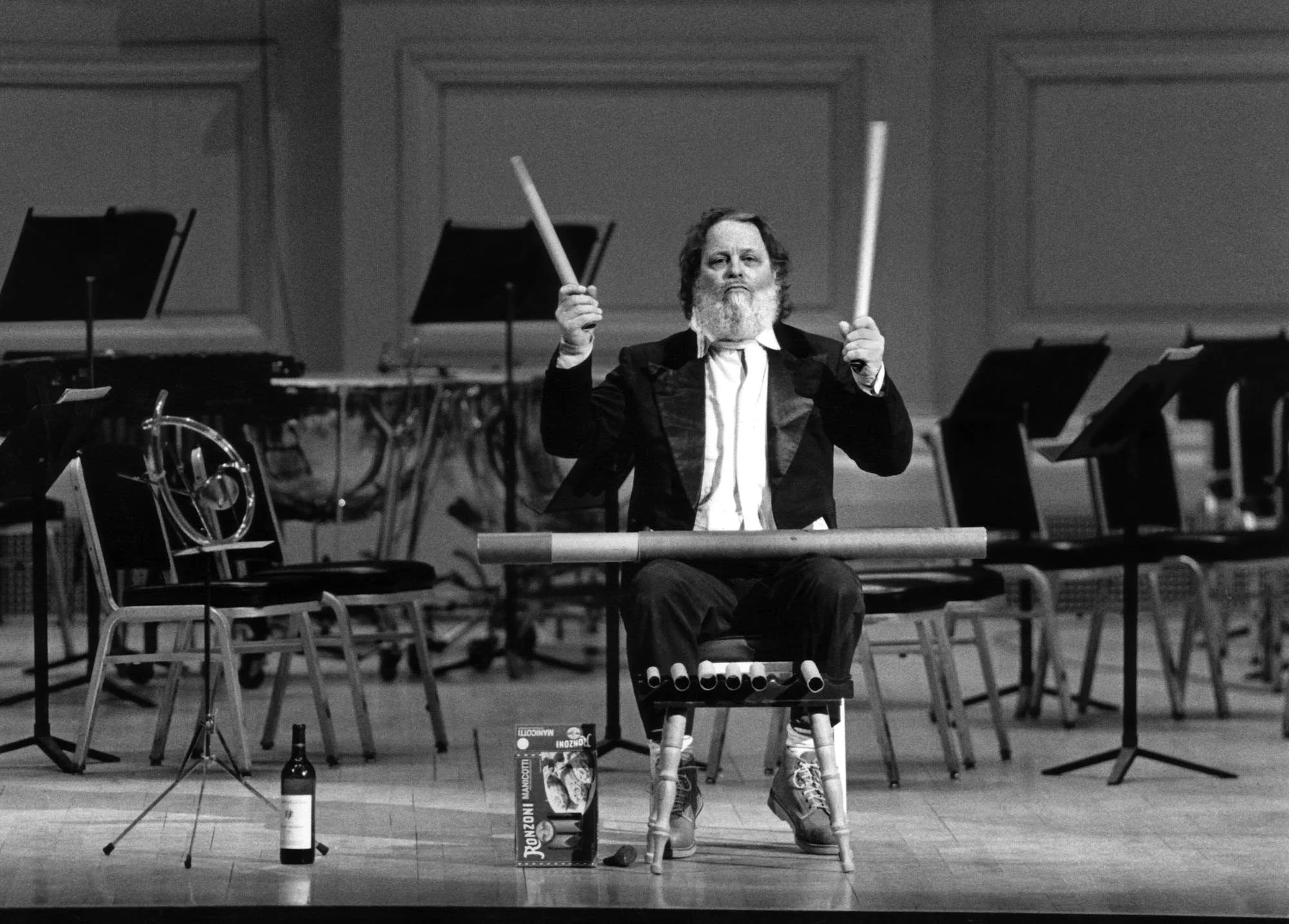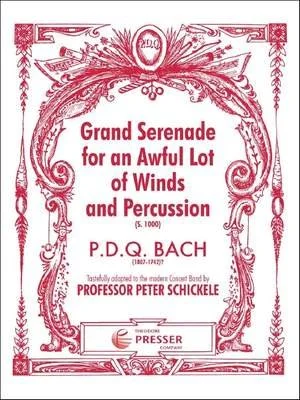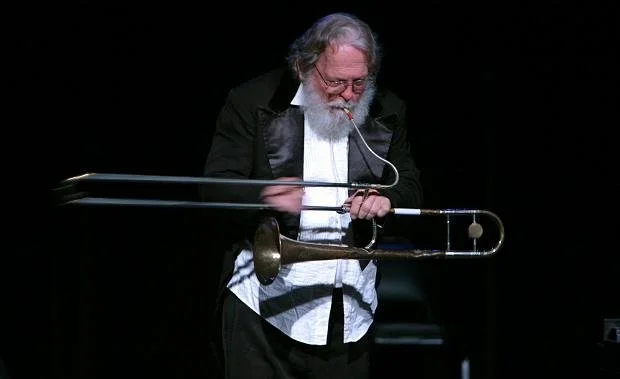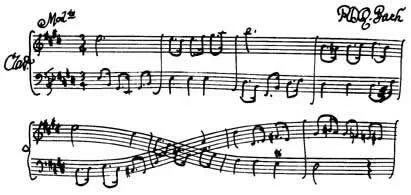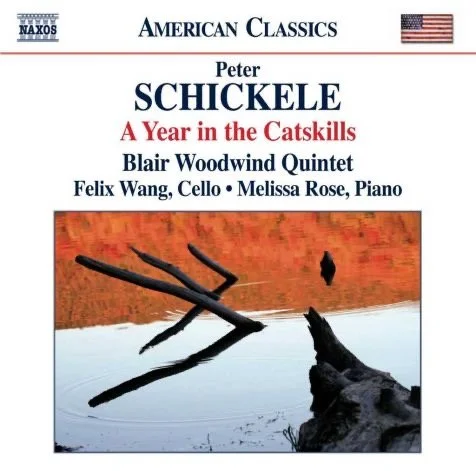CLASSICAL'S CLEVER CUT-UP -- P.D.Q. BACH
MANHATTAN — 1965 — Classical music is a somber discipline. An occasional “scherzo” makes a musical joke, but as Woody Allen quipped, “the trombone has all the best lines.” So the prim audience at Town Hall in Manhattan is unprepared this summer night for a unique version of Beethoven’s 5th. After the BANG! of a starter’s pistol, the orchestra begins.
Da-Da-Da-Domm.
From the side of the stage, the announcer weighs in. Watch:
“And they’re off! With a four note theme, very exciting! I don’t know whether it’s slow or fast yet because it keeps stopping.”
Da-Da-Da-Dommm!
“Doesn’t seem to be able to get off the ground yet. . . But, wait! Yes it looks like we’re coming up to a cadence here, folks. . .”
Da-da-da-domm-dommm-dommm!
“Oh, the violins didn’t hold off. I’m surprised they weren’t called for holding.”
Beethoven’s Fifth continues with sports commentary, a flag-throwing referee, even an instant replay. At the mic, dressed in a tuxedo, Peter Schickele is debuting “new horizons in music appreciation.”
In a comedy/music career that spanned fifty years, Peter Schickele punctured the pomposity of classical music. Satire demands expertise, however, and Schickele had the concert creds. Trained at Julliard, Schickele composed serious symphonies and chorales performed throughout America. But he would have been just another maestro without P.D.Q. Bach.
Schickele described P.D.Q. Bach (1807-1742?) as “the youngest and oddest of the twenty-odd children" of Johann Sebastian Bach. According to Schickele’s “definitive biography,” P.D.Q. is “the most justifiably neglected composer in the history of music. . . the most dangerous musician since Nero,” and “that no-good, lyin’, cheatin’, wine-swillin’ buffoon.”
PDQ’s 1965 debut grew out of comedic concerts Schickele began as a student at Julliard. Raised in an academic family, Schickele studied classical music from childhood but he also loved comic conductor Spike Jones, who once performed Beethoven’s 5th on kitchen utensils.
Schickele envisioned a serious musical career, but when his first comedic concert became a popular record, he took his spoofs on the road. College students soon discovered “the potent combination of marijuana and P.D.Q. Bach records.”
As audiences grew, Schickele crafted bios for P.D.Q. and himself. Schickele billed himself as a “very full professor” of music pathology at the University of Southern North Dakota at Hoople, aka the U of S.N.D. at H. A dedicated scholar, very full Professor Schickele tirelessly dug up lost compositions from the lost life of Bach’s “21st of 20 children.”
Apparently Schickele discovered P.D.Q. in a Bavarian castle where he found some sheet music being used as a coffee filter. “This turned out to be the Sanka Cantata by a then-unknown composer named P.D.Q. Bach.” Further research turned up “many more P.D.Q. Bach scores, each one more insidious than the last.”
Touring concert halls, the bearded, shaggy Schickele had audiences howling. From his entry on stage, sometimes on a motorcycle, more often swinging on a rope, he held forth with timing worthy of a skilled musician and highbrow humor lampooning the classics. But there was also music, P.D.Q.’s compositions.
Four Curmudgeonly Canons. Three Teeny Preludes. A Little Nightmare Music. Oedipus Tex, featuring the “O.K. Chorale.” Pevertimento for Bagpipes, Bicycle and Balloons. Suite No. I for Cello All by its Lonesome. O Little Town of Hackensack. . .
Along with conducting, Schickele played instruments invented by P.D.Q. The left-handed sewer flute. The pastaphone. The dill piccolo for playing sour notes. The Lasso d’amore, the tromboon, and the proctophone, “a latex glove attached to a mouthpiece and the less said about it the better.”
P.D.Q. and Schickele made a great comic team. Schickele’s albums won four comedy Grammys. His concerts sold out. And performing on into his 80s, Schickele became, according to the New Yorker, “the one American composer whose name makes everyone smile.”
But when not spoofing, Schickele scored the sci-fi film “Silent Running” and joined a chamber rock trio to back the Broadway show “Oh, Calcutta!” His serious symphonies, cantatas, and chorales surprised and disappointed fans of P.D.Q. Bach. “It’s sort of, ‘Oh no, not another clown who wants to play Hamlet.’”
If the serious Schickele battled the satirist, the latter was the clear winner. But the professor fought the good fight in his weekly public radio program, “Schickele Mix.” There he taught the intricacies of classical music, analyzing composers who were neither funny nor fictitious.
In 2015, Schickele and P.D.Q. gave a 50th anniversary performance of their debut at Town Hall. Three years later, Schickele had to stop touring due to health concerns. His own children, each members of indie rock bands, carry on the musical tradition. And the 17 P.D.Q. Bach records promise to make Schickele’s discovery immortal, if not immoral.
“I know people that I like that don’t enjoy P.D.Q. Bach,” Schickele said. “But I think that most musicians recognize that P.D.Q. Bach is a satire of love, and I think the two things can live together in peace.“

